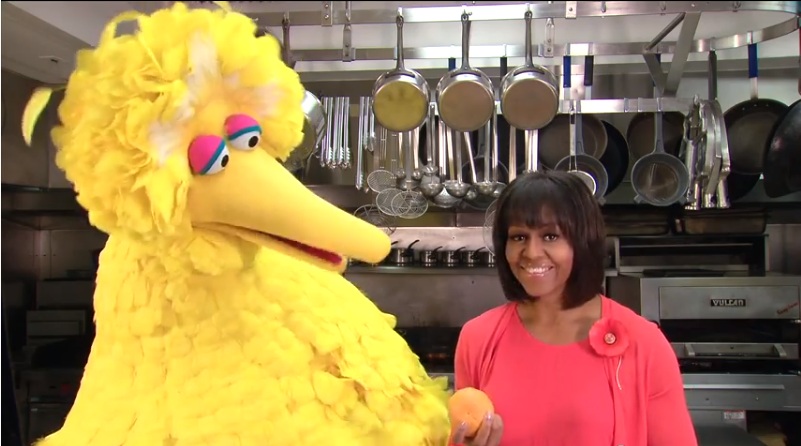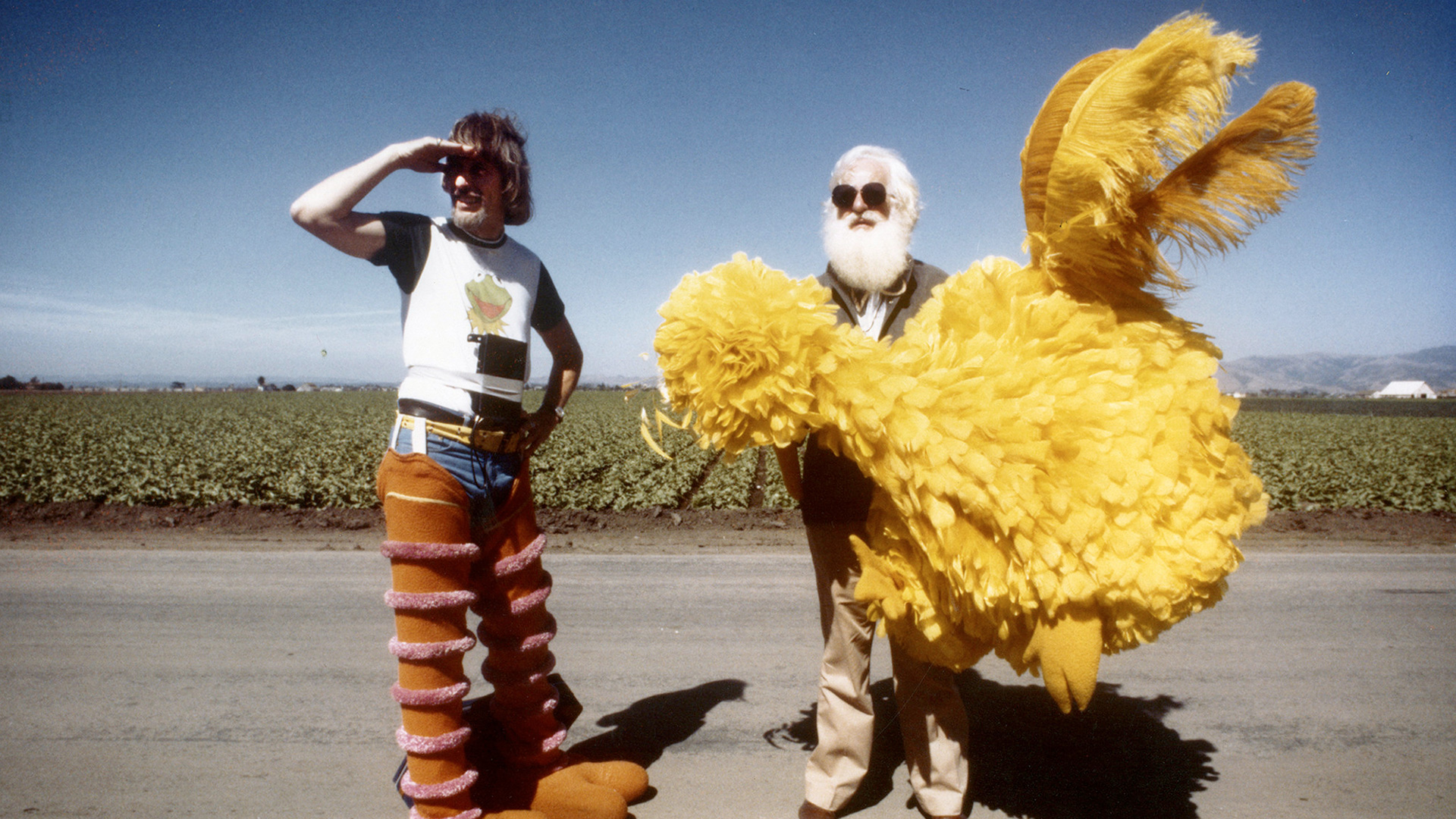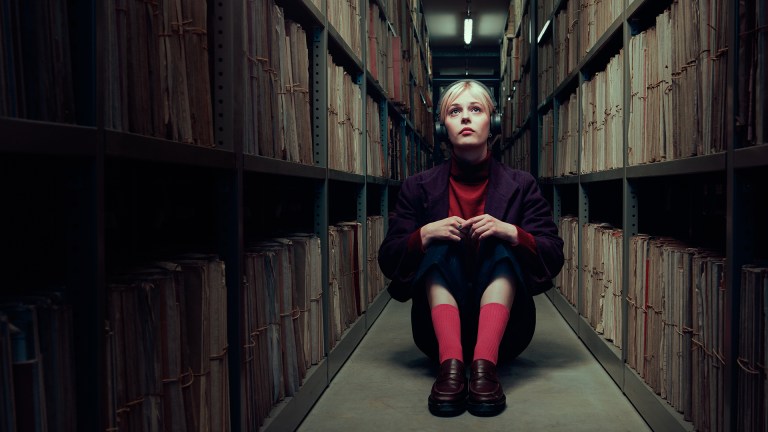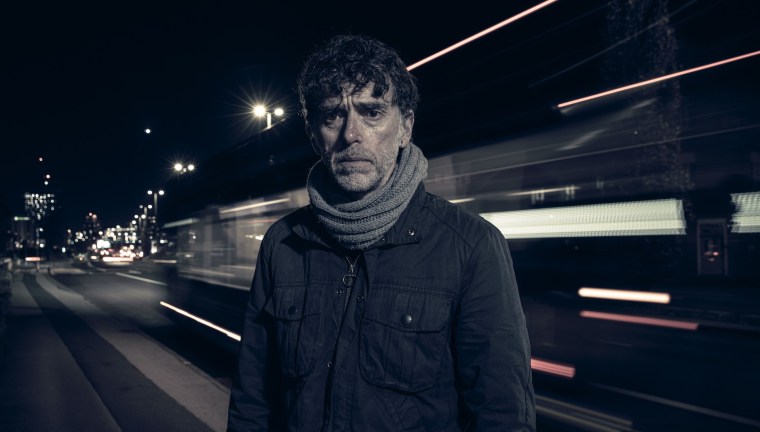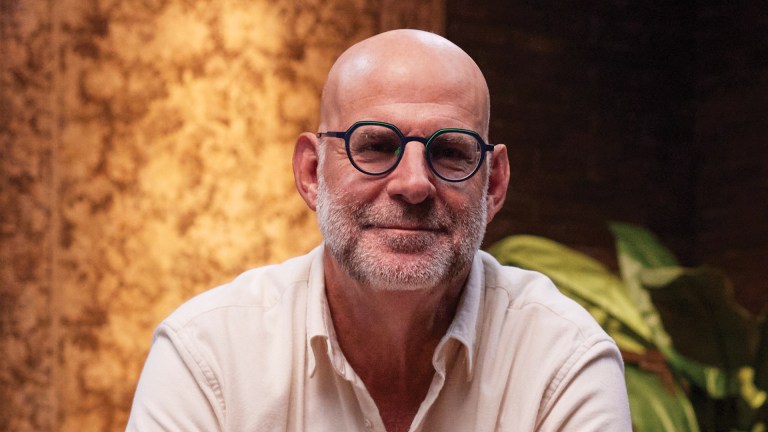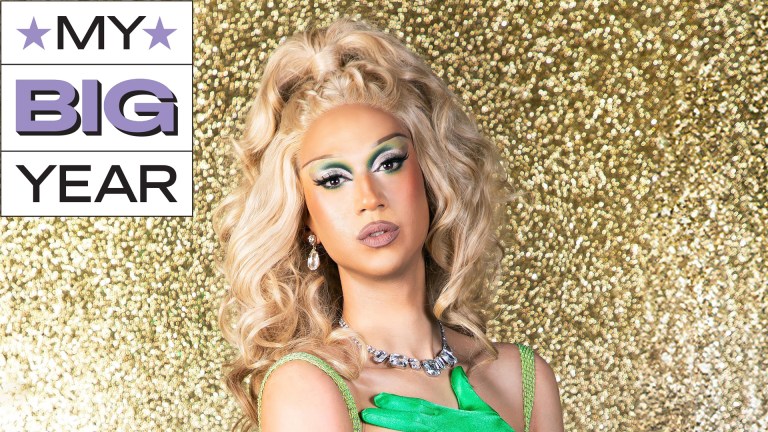Well, the way I found it was to become a puppeteer. Jim Henson was looking for someone to play two characters, Big Bird and Oscar the Grouch. Big Bird was very silly to start with. Henson said, “Think of him as a yokel.” I played him that way for a few weeks then I began to understand what the show was about and I said, “I think Big Bird should be a child, learning the alphabet with all the other kids at home.”
Where is Sesame Street actually located?
For the first 24 years it was in a theatre on Broadway. They tore it down to build a condo and we moved to big studios in Queens that have been there for years. The Marx Brothers movies were mostly made there and I understand that Big Bird’s nest is directly over the giant swimming pool they used to use in these Busby Berkeley films.
A new documentary about you is called I Am Big Bird. Is that how you feel? Are you Big Bird?
I am…
[In Big Bird’s voice]: At times!
What has been the most surreal moment in your life as an eight-foot tall bird?
When I was a boy we listened to a radio show, “The best tunes of all come from Carnegie Hall!” I got to sing a song there, called People.
Big Bird (singing): People, people who need people, are the luckiest people in the world…
I could barely see out of the Bird but I’m lounging on the piano, the orchestra swells, it was one of the highlights of my life.
Does Big Bird have real feathers?
They’re American turkey feathers that have been dyed in Hong Kong to shades of gold and yellow. There are 6,000 on his body alone, probably another 900 on his head. It costs a pretty penny as the feathers are about $1.50 each. I’m still using the same Big Bird head we had in 1969 although the body – made out of plastic hoops held together by netting – has been rebuilt many times.
It must have been an interesting political climate in America when Sesame Street first aired.
We tried to reflect the good things about America… there are some! It was controversial because it was the first time a programme for children had mixed races in one area living happily together. Certain states didn’t want that to be shown. We stood our ground.
Sesame Street has never shied away from difficult issues, such as racism, poverty, Mr Hooper’s death and Big Bird suffering from bullying.
I was bullied a lot when I was at school so I could definitely identify with that. One of the things I was criticised about was having puppets. That wasn’t a very masculine thing to do.
Big Bird: You still playing with your dolls? I never played with them, I always performed with them.
What made you interested in puppetry in the first place?
My mother was born in England and she used to see Punch and Judy shows when she was a little girl in Blackpool. She made me a Punch and Judy set for my ninth birthday, which was Christmas 1942. She didn’t realise she was giving me my career.
Why has Sesame Street lasted so long?
We don’t talk down to kids. They’re treated as equals, as they should be. I talk to two-and-a-half year olds as if they’re old enough to vote. The genius in the beginning was making it as funny as it was educational. That kept people watching. As a result famous actors and actresses would ask to be on the show. There are only a few I wish they’d put on that wanted to be on.
Like who?
Pete Townshend. One person [in the production team] didn’t like him – they liked jazz. They also turned down George Harrison.
Big Bird: How could you? George Harrison? He’s a Beatle!
Not many people can say they have performed with Johnny Cash, Ray Charles, Michael Jackson…
Michael Jackson was only 17. He asked in his little voice, “How do you get into that trash can?” I said, “Want to see how it works?” He said, “Oh no. I love fantasy. I want to keep thinking of this grouchy little green man.” He said, “I want my whole life to be fantasy.” It seemed to have worked for him.
How many First Ladies have you worked with?
I think it’s eight First Ladies now and I’ve been to the White House nine or 10 times. But I’ve only met presidents before they were presidents. I would love to meet Barack Obama. He happens to be my ninth cousin – we’re not very close. I’ve worked with his wife twice. She’s charming. When we met she said, “Well cousin, at last we meet!” She’s very smart but she’s very human. She has a great sense of humour. I’ve worked with Hillary [Clinton] on a few different occasions and she also has a fabulous sense of humour. And I think she needs one right now.
Big Bird became a hot topic during the last presidential election when Mitt Romney pledged to cut funding to PBS, despite declaring, “I love Big Bird.”
It was probably a mistake on his part. Big Bird was very important in children’s lives and now they’re in their 40s with their own little children. Big Bird is strong in their heart. In their mind he’s real.
What other ambitions do you still want to achieve?
I have a group of Emmys, including a Lifetime Achievement one. The name Oscar is very protected by the Academy of Motion Pictures – they insist I can’t just say Oscar, it has to be Oscar the Grouch – I’d love to get one of those.
Big Bird: Not a chance!
I’m aiming to do at least 50 years as the Bird and Oscar. I don’t want to stop if they still like everything I’m doing.
I Am Big Bird is in cinemas from May 1
Watch the Pride special collection.
Our LGBTQ+ film playlist offers a new and interesting angle on LGBTQ+ love and struggle – giving an international overview by taking us inside some of the most and least sexually liberated countries in the world.
Sign Up Now 